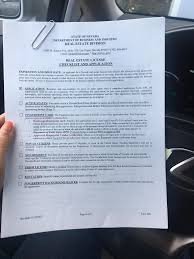
Real estate taxes are levied on residential or commercial properties to fund schools, roads, sewers, water, road and park repairs, schools and other public institutions. Property taxes are based primarily on the assessed property value of your home or land. This can vary widely from region to region.
How to Calculate your Taxes
As the rates vary by state and region, there is no single formula that will accurately estimate your property tax bill. Contact your local government for information.
Real estate agents typically pay a percentage of their income in taxes each year, which can make it challenging to determine how much you'll owe to the IRS. However, there are a few tips and tricks that can help you calculate your taxes more accurately.
First, you need to know how to calculate the assessed value of your property and land. This number can be found in your annual tax notice, at your local tax assessor's office or on the website of your city or county.

Next, multiply that number by a rate of tax assessment and you can calculate your property taxes. The tax rate varies by jurisdiction and can range from a few mills to a percentage, like 4%.
A tool called SmartAsset Property Tax Calculator can help you get an estimate of the tax bill. This tool will give you an estimate of how much your property tax will be based upon the assessed value your home as well as any additional properties such as land.
How do real-estate agents pay their taxes
Real estate agents must also pay their property taxes in addition to their income taxes. This covers both the property and personal property, including cars and boats that may be parked on the property.
Unlike other businesses, a real estate business is not incorporated, and so the owner of the business must file their own tax return each year. This can be a complex process so it is important to consult a professional in order to file your tax returns correctly.
How to deduct expenses from your Real Estate Profits
One of the most important ways that real estate investors can save money at tax time is by making sure they take advantage of all available deductions. These can include appraisal fees, real-estate commissions, advertising expenses, and insurance.

Proper records are another key way real estate investors can reduce their taxes. This includes receipts for any purchases you make for your business as well as documents such business cards.
Real estate professionals can also enjoy a variety of tax benefits. These include a loss deduction for real estate investments as well as an exemption from the Medicare tax at 3.8 percent on unearned income. This tax break can help real estate agents and brokers earn more money while maintaining a healthy financial position.
FAQ
How long does it take to sell my home?
It depends on many factors including the condition and number of homes similar to yours that are currently for sale, the overall demand in your local area for homes, the housing market conditions, the local housing market, and others. It can take anywhere from 7 to 90 days, depending on the factors.
What should I be looking for in a mortgage agent?
People who aren't eligible for traditional mortgages can be helped by a mortgage broker. They search through lenders to find the right deal for their clients. Some brokers charge fees for this service. Some brokers offer services for free.
Do I need flood insurance?
Flood Insurance protects you from flooding damage. Flood insurance protects your belongings and helps you to pay your mortgage. Find out more about flood insurance.
What are the downsides to a fixed-rate loan?
Fixed-rate mortgages have lower initial costs than adjustable rates. You may also lose a lot if your house is sold before the term ends.
What are the top three factors in buying a home?
Location, price and size are the three most important aspects to consider when purchasing any type of home. It refers specifically to where you wish to live. The price refers to the amount you are willing to pay for the property. Size refers to the space that you need.
Statistics
- This means that all of your housing-related expenses each month do not exceed 43% of your monthly income. (fortunebuilders.com)
- The FHA sets its desirable debt-to-income ratio at 43%. (fortunebuilders.com)
- Over the past year, mortgage rates have hovered between 3.9 and 4.5 percent—a less significant increase. (fortunebuilders.com)
- When it came to buying a home in 2015, experts predicted that mortgage rates would surpass five percent, yet interest rates remained below four percent. (fortunebuilders.com)
- Private mortgage insurance may be required for conventional loans when the borrower puts less than 20% down.4 FHA loans are mortgage loans issued by private lenders and backed by the federal government. (investopedia.com)
External Links
How To
How to manage a rental property
Renting your home can be a great way to make extra money, but there's a lot to think about before you start. We'll show you what to consider when deciding whether to rent your home and give you tips on managing a rental property.
Here are the basics to help you start thinking about renting out a home.
-
What are the first things I should consider? Before you decide if your house should be rented out, you need to examine your finances. If you have outstanding debts like credit card bills or mortgage payment, you may find it difficult to pay someone else to stay in your home while that you're gone. Your budget should be reviewed - you may not have enough money to cover your monthly expenses like rent, utilities, insurance, and so on. It might not be worth the effort.
-
How much will it cost to rent my house? There are many factors that go into the calculation of how much you can charge to let your home. These factors include your location, the size of your home, its condition, and the season. It's important to remember that prices vary depending on where you live, so don't expect to get the same rate everywhere. The average market price for renting a one-bedroom flat in London is PS1,400 per month, according to Rightmove. This means that your home would be worth around PS2,800 per annum if it was rented out completely. It's not bad but if your property is only let out part-time, it could be significantly lower.
-
Is it worth it. Doing something new always comes with risks, but if it brings in extra income, why wouldn't you try it? Make sure that you fully understand the terms of any contract before you sign it. You will need to pay maintenance costs, make repairs, and maintain the home. Renting your house is not just about spending more time with your family. These are important issues to consider before you sign up.
-
What are the benefits? So now that you know how much it costs to rent out your home and you're confident that it's worth it, you'll need to think about the advantages. You have many options to rent your house: you can pay off debt, invest in vacations, save for rainy days, or simply relax from the hustle and bustle of your daily life. It's more fun than working every day, regardless of what you choose. If you plan well, renting could become a full-time occupation.
-
How can I find tenants Once you decide that you want to rent out your property, it is important to properly market it. You can start by listing your property online on websites such as Rightmove and Zoopla. Once potential tenants reach out to you, schedule an interview. This will help you assess their suitability and ensure they're financially stable enough to move into your home.
-
How can I make sure that I'm protected? If you don't want to leave your home empty, make sure that you have insurance against fire, theft and damage. You'll need to insure your home, which you can do either through your landlord or directly with an insurer. Your landlord will typically require you to add them in as additional insured. This covers damages to your property that occur while you aren't there. If your landlord is not registered with UK insurers, or you are living abroad, this policy doesn't apply. In this case, you'll need to register with an international insurer.
-
It's easy to feel that you don't have the time or money to look for tenants. This is especially true if you work from home. But it's crucial that you put your best foot forward when advertising your property. Make sure you have a professional looking website. Also, make sure to post your ads online. A complete application form will be required and references must be provided. Some people prefer to do the job themselves. Others prefer to hire agents that can help. It doesn't matter what you do, you will need to be ready for questions during interviews.
-
What should I do once I've found my tenant? You will need to notify your tenant about any changes you make, such as changing moving dates, if you have a lease. If this is not possible, you may negotiate the length of your stay, deposit, as well as other details. You should remember that although you may be paid after the tenancy ends, you still need money for utilities.
-
How do I collect rent? When the time comes to collect the rent, you'll need to check whether your tenant has paid up. If not, you'll need to remind them of their obligations. Any outstanding rents can be deducted from future rents, before you send them a final bill. If you're struggling to get hold of your tenant, you can always call the police. They will not normally expel someone unless there has been a breach of contract. However, they can issue warrants if necessary.
-
How can I avoid potential problems? Renting out your house can make you a lot of money, but it's also important to stay safe. Make sure you have carbon monoxide detectors installed and security cameras installed. You should also check that your neighbors' permissions allow you to leave your property unlocked at night and that you have adequate insurance. You should not allow strangers to enter your home, even if they claim they are moving in next door.